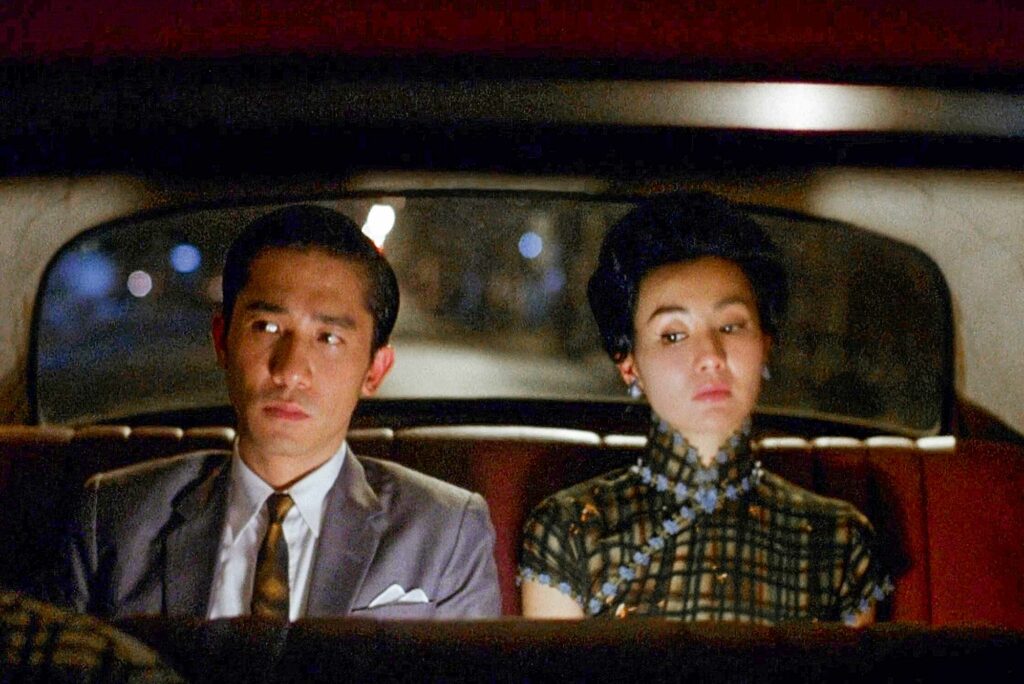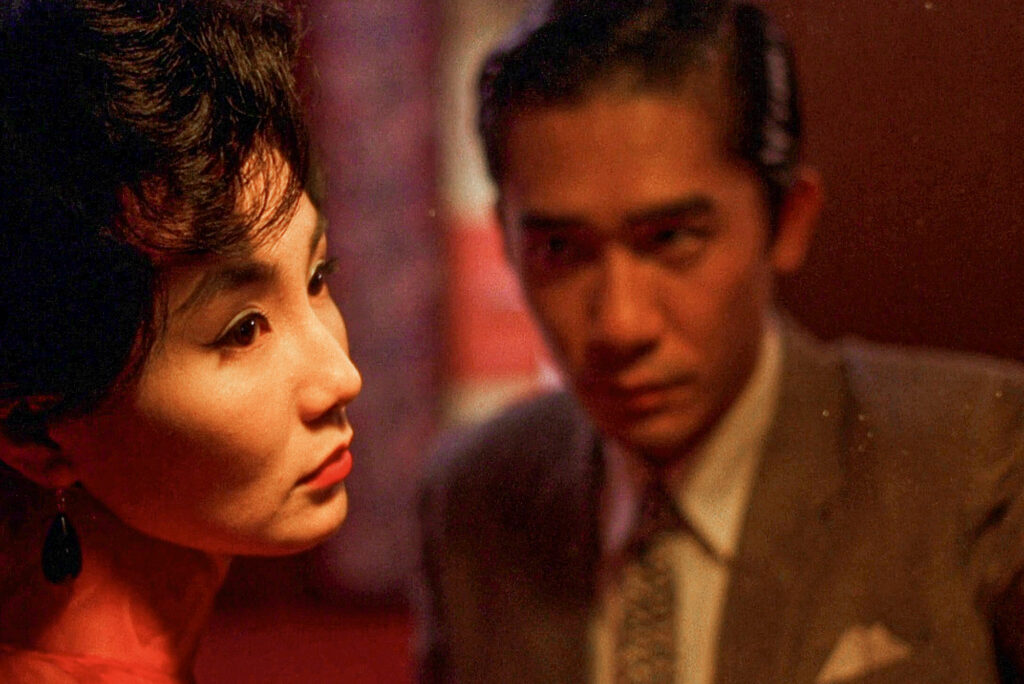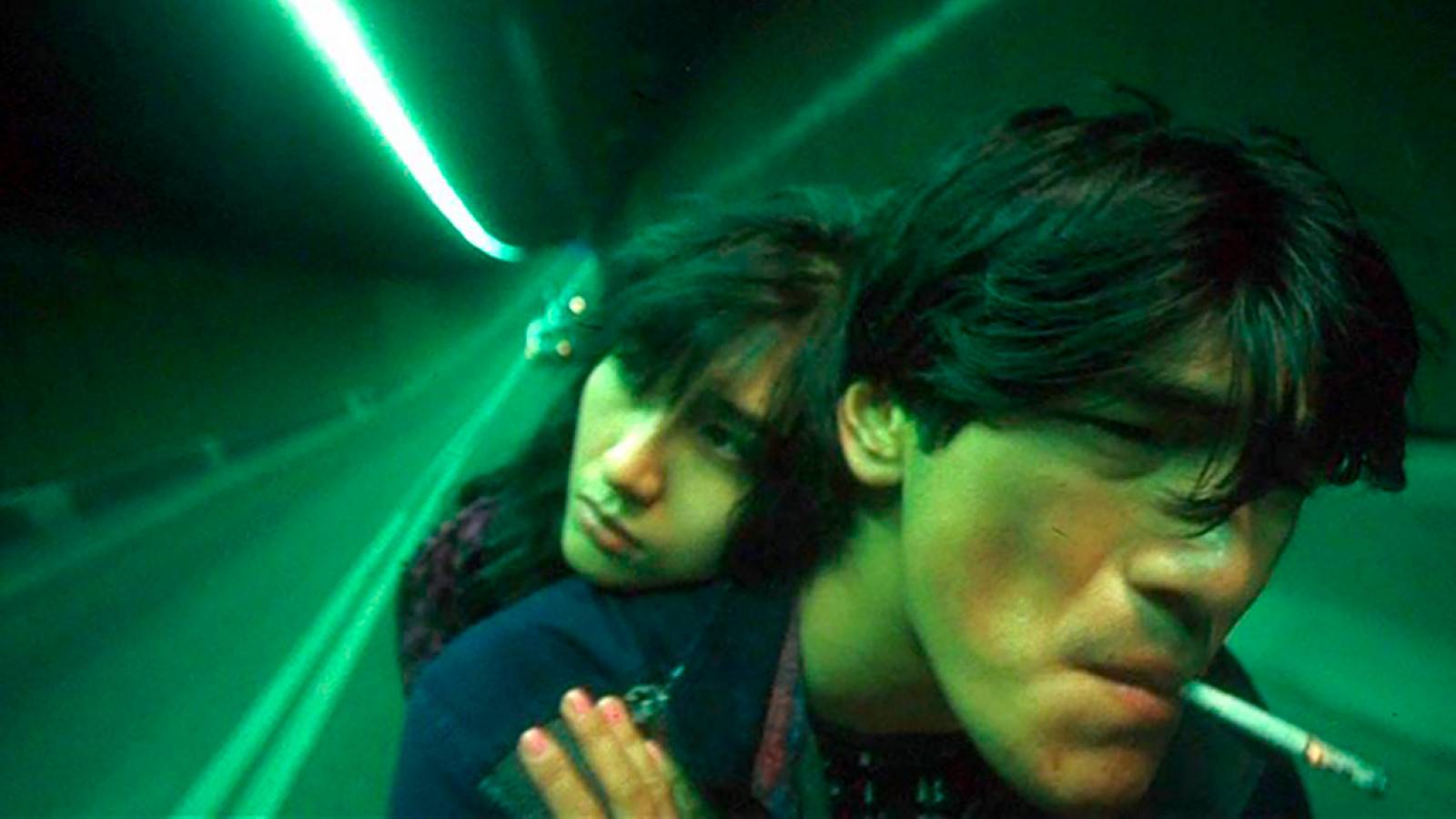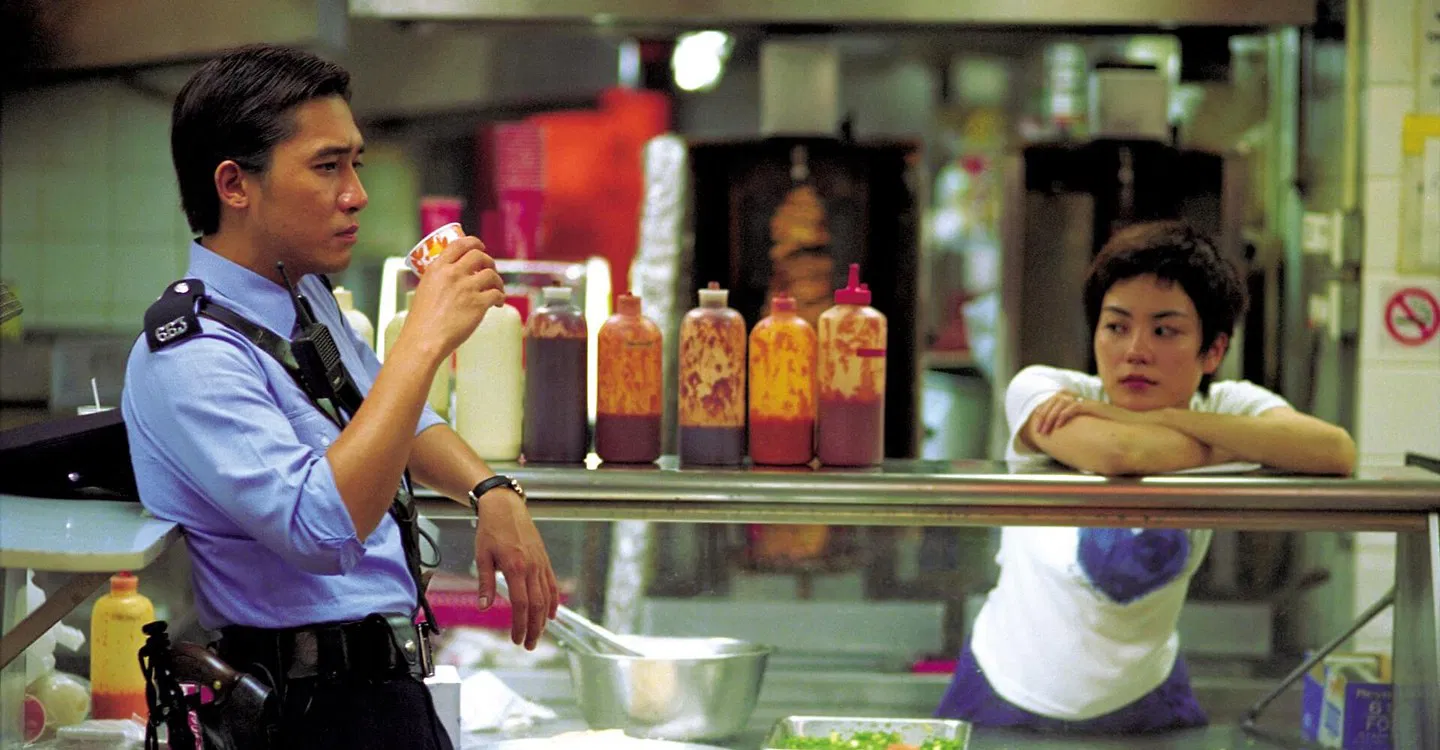By Katerina Valouxi,
One does not have to be familiar with director Wong Kar Wai’s films to have caught a glimpse of Maggie Cheung and Tony Leung in In the Mood for Love, one of the most significant movies of the 21st century, featuring one of the most memorable and beloved pairs in cinematic history. The image of the two characters’ shadows standing against the red-lit background of 1960s Hong Kong is the most iconic—though not the only—example of Wong Kar-Wai’s ability to masterfully depict longing and nostalgia through the art of filmmaking.
To begin with, a striking aspect of Wong Kar-Wai’s work is that he crafted films distinctly different from those dominating Hong Kong cinema at the time. Bearing similarities to Hollywood, Hong Kong’s film industry did not encourage the creation of movies purely for the sake of art. On the contrary, films were made to appeal to the largest audience possible, largely due to Hong Kong’s rapid economic development.
The island’s national identity was already entangled with that of the British colonial powers, and it became even more complicated after the colonial government passed the 1987 Film Censorship Bill—a law that restricted “[motion] pictures which damage relationships with other countries”, which filmmakers interpreted as a reference to China. Thus, in the 1980s, the most popular genre in Hong Kong cinema surged: dynamic action movies, later referred to as the Hong Kong “New Wave”. These films sought to subvert Chinese control but ultimately remained shallow and fell back on old tropes. In contrast, Wong Kar-Wai’s films accomplished the opposite: they created intimacy and tension through still, fragmented images that placed the audience firmly in the mood for love.

Love in the urban landscape is the main characteristic of one of his most remarkable films—“Chungking Express”. Unrequited love and unreciprocated desire define the characters of this drama that is simultaneously a comedy, in which stories of different individuals blend together, tangle and then detangle, like in most Wong Kar Wai films. While the first half of the movie is concerned with the story of a policeman, played by Takeshi Kaneshiro, who becomes enamored with a female smuggler, in the second half star Faye Wong and Tony Leung, playing a girl that works in a canteen and a police officer who is the object of her desire throughout the movie. In this case, Wong Kar Wai does little to merge the two storylines- Kaneshiro and Wong’s shoulders brush off against each other once by accident, but what unites both storylines is the presence of a police officer as a subversive character. These cops are not defined by their identity as policemen, but by their love lives.
Quiwu, the cop played by Kaneshiro, spends all of his time buying canned pineapple slices with the expiration date of May 1st to commemorate the one-month mark since his break-up with his ex-girlfriend. Thus, he is in a state of emotional turmoil when he meets the smuggler and he becomes fascinated by her, just because he tries to get over his heartbreak, oblivious to the fact that she is a person he should arrest. Similarly, the cop played by Tony Leung is also anxious about his break-up. His most vulnerable moments are shown; him sitting around in his apartment making airplane models and talking to household objects.

However, Faye Wong steals the show, portraying a girl who is in love with Tony Leung’s character. Some of the most memorable scenes of the movie are her listening to “California Dreaming” and dancing around carelessly, or cleaning and redecorating the policeman’s house, in which she broke in while he was not there, because that is the only way in which she can express her love for him. After all, completion and unison in love are not Wong Kar-Wai’s goals. Even when the characters of Faye Wong and Tony Leung meet again in the end, and their feelings this time seem to be mutual, there is nothing that promises the possibility of their reunion except for Leung’s magnifying gaze and his last words before Wong’s “Dream Man” starts playing and after she asks him where he wants to go; “Wherever you want to take me”.
Wong Kar-Wai does not need to say a lot in order to get his point across, and “Fallen Angels” proves exactly that. Almost the third storyline in “Chungking Express” and perhaps his most quiet film in terms of dialogue, “Fallen Angels” also centers around themes of loneliness, longing and unrequited love, but this time in a darker urban landscape. Again, two storylines are showcased and sometimes merged with each other, shown interchangeably. A female agent and a hired killer try not to get emotionally involved with each other, while the latter begins a romantic relationship with another woman, and a mute Takeshi Kaneshiro, again named Qiwu, becomes obsessed with a young woman who tries to win back her ex-boyfriend. Yet again, Wong Kar-Wai crafts a story of people unable to fully connect. Emotional commitment and connection is something to be afraid of, something unachievable and almost unimaginable. The only deep emotional connection in the film seems to be between Qiwu and his father, but only after he dies. Rather than focusing on dialogue, everything is communicated through the actors’ performances, the voiceover, and the change between black and white frames and the scenes set against a green and yellow color palette.

Circling back to Wong Kar Wai’s most famous work, “In The Mood for Love” is the most striking example of the way he manages to evoke strong feelings with little, and mostly improvised, to no dialogue. What he achieves in just an hour and a half is to put the audience in a mood for love, then nostalgia and finally, heartbreak. When the characters of Maggie Cheung and Tony Leung, who are neighbors in the same apartment building, realize that their partners are cheating on them with each other, they vow that they will never be like them. However, love according to Wong Kar-Wai is, of course, not so simple. In the backdrop of 1960’s Hong Kong and Nat King Cole’s Spanish rhythms, in what looks like a nostalgic Chinese melodrama, the two exchange glances, talk about their day, cook for each other and try to express what they feel without ever engaging in any romantic activity. Ironically, the characters in one of the most erotic films of all time barely touch each other’s skin.
The poetic quality of Wong Kar-Wai’s films gives them a bittersweet sense of incompletion. From the melancholic Days of Being Wild and 2046 to the heartbreaking queer love story of Happy Together, Wong has mastered the cinematic portrayal of unrequited love and desire. And as Quentin Tarantino himself once admitted, “I’m sorry, I don’t think I’ll ever be able to hear California Dreamin’ again without seeing Faye Wong do her little dance”.
References
- Payne, Robert M. “Ways of seeing wild: the cinema of Wong Kar-wai.” Jump Cut 44.04 (2001).
- Teo, Stephen. “Wong Kar-wai’s In the Mood for Love: Like a Ritual in Transfigured Time.” Senses of Cinema 13 (2001).




